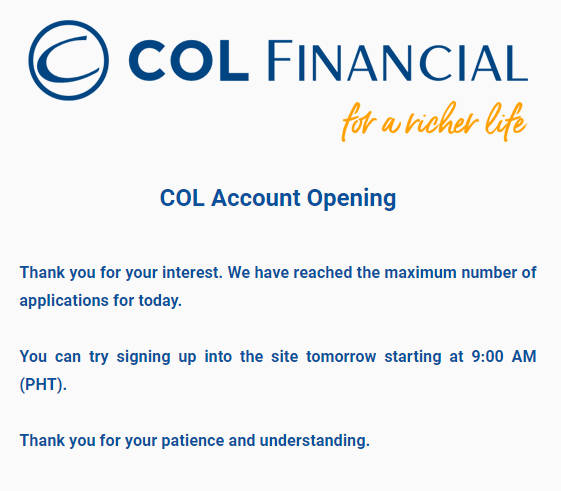It all starts with the right mindset. Whether that strikes you as cliche or not, this is what I’ve found to be true — the larger the goals, the larger the results. Small-minded goals are the bane of financial freedom aspirations. They are the silent killers of dreams. Instead, we should all learn to dream big as our pre-teen selves would have. A winning mindset and attitude towards money is the first step in molding these dreams.
Not all goals are financially driven, of course. But I doubt anyone would say money doesn’t help. While money isn’t what makes us happy, it sure does make it a little bit easier. I’ve learned to accept this truth.
We also have to face fears of how money might transform us. If money isn’t important to you, then that’s a manifestation of how you’ll be with money. If you wish nothing but disdain for those around you, then that also says a lot. Money merely amplifies who we are.
And when you’re emotionally ready to pursue opportunities that build wealth, know that money is in abundance. There’s plenty of opportunities for everyone. You deserve a slice.
(I’ve used ‘money’ and ‘wealth’ interchangeably but they’re technically different. At the risk of oversimplification, money is short-term while wealth is long-term. You can have money with wealth, but not necessarily wealth with money.)
(Related: Monthly Savings will NOT Lead to Financial Freedom)
Page Contents
Money will not make you happy… but
One of the biggest contentions against money is that it doesn’t make you happy. While there has been no conclusive evidence both for it nor against it as a driver of happiness, we do know this:
Happiness is how we interpret outside events.
Money and happiness
Happiness is not the result of good fortune, nor is it something we can buy. It is a condition that’s cultivated by each person. In other words, happiness depends on how we filter everyday experiences. A homeless person can be happy with the simplest of gestures.
For most humans, money makes it easier to develop structures that align with our personal happiness. If family time is important to you, then having wealth affords you that time. If experiencing cultures by traveling is what makes you happy, then wealth can do that. Wealth is an enabler.
Or think about medical emergencies. Wouldn’t it be reassuring to know you’re able to pay for the best doctors and treatment?
What do you value
A compelling “why’ is consequently necessary. Knowing what makes you truly happy means you row in the right direction — you dedicate your time and energy towards that goal. It then becomes clear how money plays a part in achieving that goal.
Is this a menacing way of thinking about money? Does it make you evil?
Money amplifies who you are
The fact is money magnifies what’s already inside. A good person becomes better and a bad person becomes worse.
If money doesn’t feel like a priority to you, consider a hypothetical where you had a billion dollars. You’d likely take care of your family, relatives, friends, neighbors, and quite possibly an entire community. A person that doesn’t value money will probably find joy in charity.
Money then enables you to contribute to society in ways not possible otherwise.
So ask yourself what you would really do. And try to put things in context when considering how much one billion dollars is. One million dollars is a mere 0.1% of a billion dollars. $100,000 is only 10% of a million dollars. It’s easier to imagine $100,000.
What would you do with a billion dollars? Your answer manifests who you are.
Money is in abundance
The previous point can be a little intimidating. I mean, who has a billion dollars? Not many people. But this brings an important consideration — few people believe they deserve financial wealth.
For many of us, it doesn’t matter if we want or need money because in our hearts and heads we don’t see ourselves achieving generational success anyway.
I’ve changed my outlook through books. History is a great teacher. We’ve consistently seen people with very little do it. And the exciting part is they typically follow models we can replicate. Copying their models is as good as learning from their mistakes.

Myths about money
Most myths about money are from people who don’t have it. “You can’t do this; you shouldn’t do that…”
On the other hand, a lot of successful people have documented their roadmaps to success. There’s no reinventing of the wheel. So maybe choose someone who has/had the success you want and follow their path. The thing is, you don’t need to be an expert to get started. You just need the right knowledge. There are no secrets.
Slice of the pie
Pareto observed something interesting. He observed that around 20% of people own 80% of the wealth around. This has come to be known as the Pareto Principle (20% of the things we do cause 80% of the results.)
This extends further. According to Inequality.org, the world’s richest 1% owns 43.4% of the world’s wealth. That’s a staggering number. It shows how much money is out there. What you’re seeing is but a fraction of what’s possible.
And it starts with a mindset that believes you deserve a slice. Your attitude will dictate your results. Do you put the blame on other people (the government, the economy, your family), or will you figure it out?
The right attitude towards money
Money won’t help if you don’t change your mindset — and a scarcity mindset will be your undoing. It’s not just about how top-notch athletes or lottery winners go broke, it’s also how middle-class earners get stuck. Action, privilege, and maybe a bit of luck all play roles. But everything falls apart without the right mindset.
The right mindset and attitude towards money are requisites to financial freedom. Money is a tool that can be your ally, it magnifies who you already are, and it is in abundance for you to amass.
Now is your time. Let’s begin with Step 1, Begin With The End in Mind.
(Related: 9 Big Steps to Achieve Financial Freedom)








